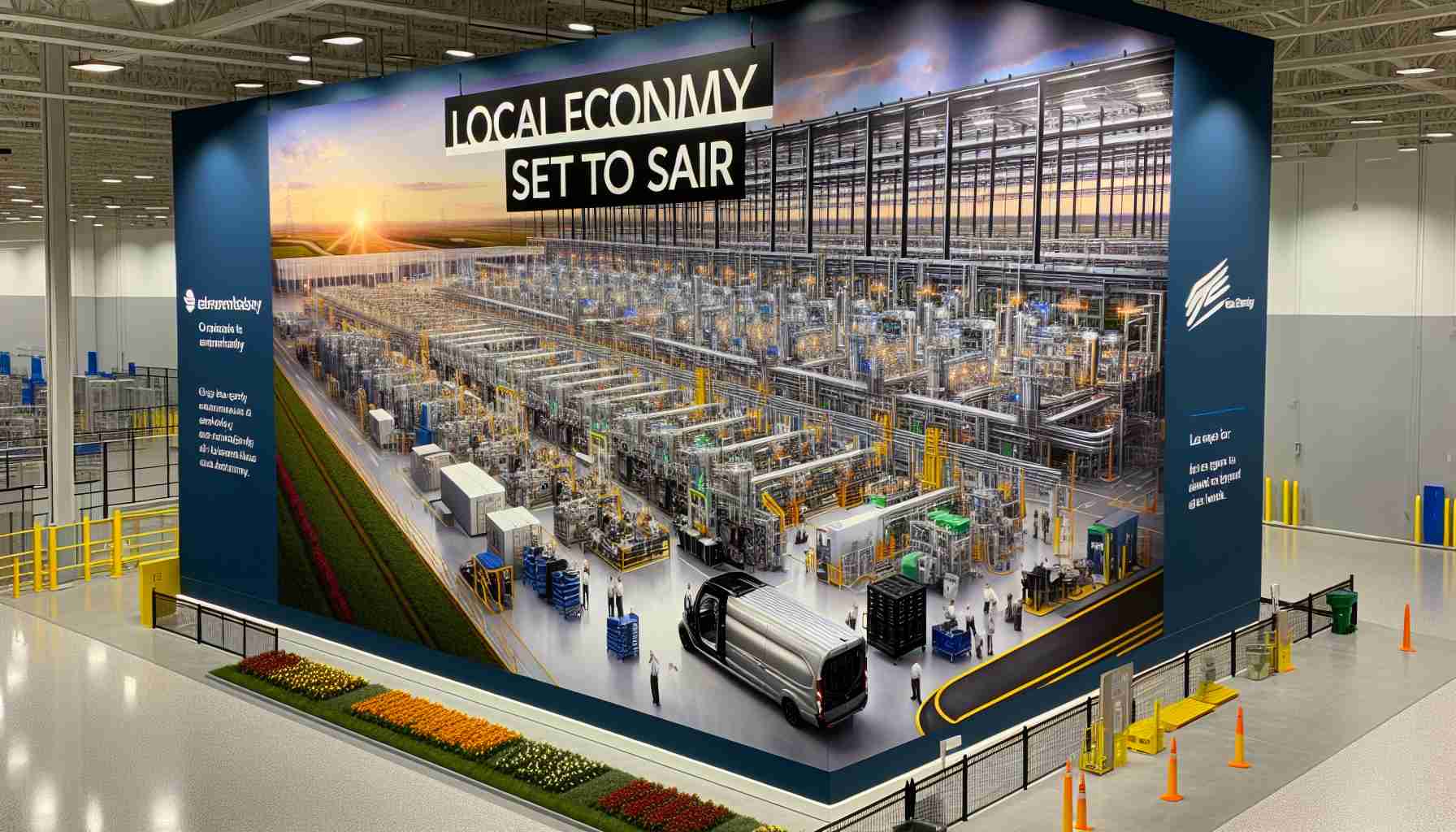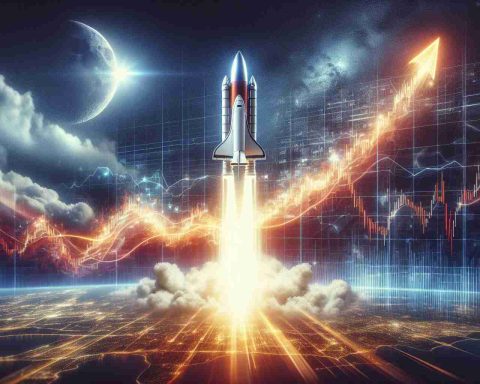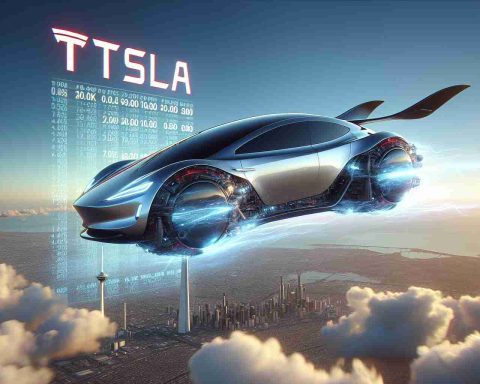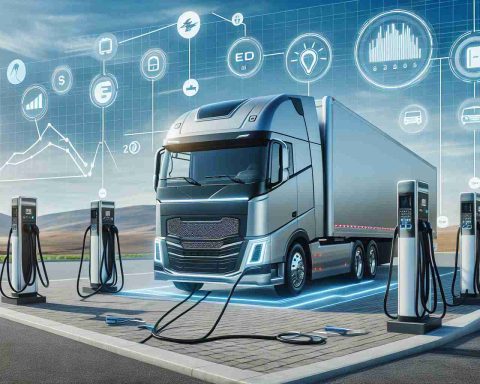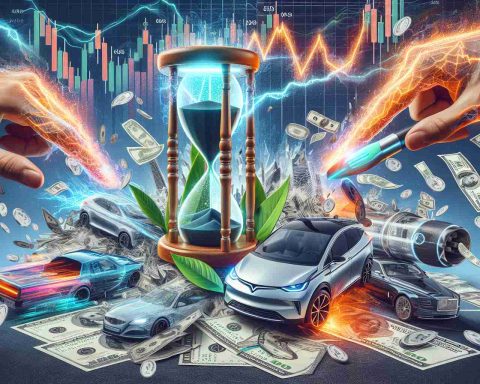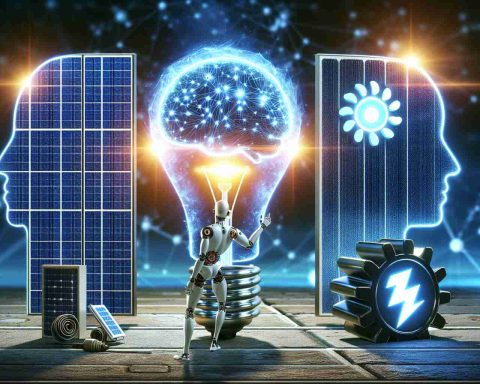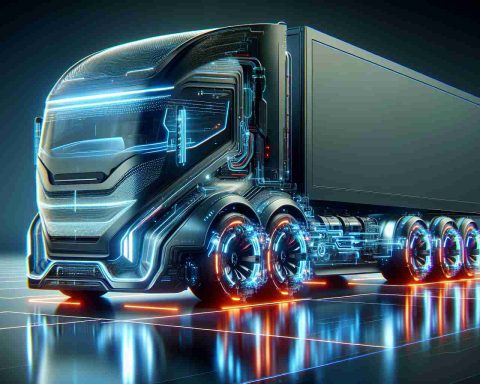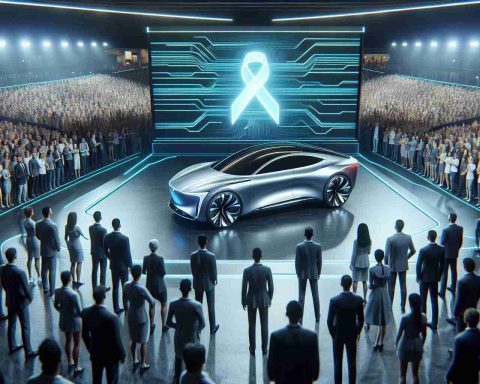Transformative Impact of Panasonic’s New Plant
In an exciting development for De Soto, Kansas, Panasonic is primed to launch its impressive battery manufacturing facility, marking a major milestone in the electric vehicle (EV) sector. This landmark project, initiated in late 2022, is anticipated to inject over $1 billion into the local economy, creating a wave of opportunities.
The ambitious venture aligns with Kansas Governor Laura Kelly’s projections, which indicate that the facility may generate as much as $500 million in labor income. Furthermore, estimates suggest an astonishing $2.5 billion return on investment for the state. Currently, more than 400 employees have joined Panasonic, with expectations of significant growth in the workforce by the end of 2026.
While the community largely welcomes this economic boost, some residents voice concerns over rapid changes that could disrupt local dynamics. Nevertheless, local leaders emphasize that the plant will attract global suppliers and enhance job prospects, invigorating the regional economy.
As communities transition toward electric vehicles, broader cultural shifts are also anticipated, encouraging sustainability as a norm. However, it remains crucial to consider the environmental impact of battery production. Ensuring responsible practices in resource extraction and manufacturing will be essential for fostering a truly sustainable future in this rapidly evolving industry.
Ultimately, Panasonic’s facility not only signifies a major step for the local economy but also heralds a new era for the electric vehicle sector as a whole.
Broader Implications of Panasonic’s New Plant
The establishment of Panasonic’s battery manufacturing plant in De Soto, Kansas, extends far beyond local economic benefits. It serves as a catalyst for societal change, particularly in shaping the cultural landscape surrounding electric vehicles (EVs) and sustainability. As more consumers embrace EV technology, a shift toward greener alternatives is imperative, influencing public attitudes and behavior toward environmental responsibility. This trend is supported by a larger movement aimed at reducing carbon footprints, which is essential in combating climate change.
On a global scale, this facility positions the United States to play a more significant role in the competitive landscape of battery production, traditionally dominated by countries like China. By investing in domestic manufacturing, the U.S. can reduce reliance on foreign supply chains, potentially leading to new trade dynamics and bolstering the national economy. Furthermore, job creation in advanced manufacturing can inspire a renaissance in the American workforce, attracting talent in STEM fields and renewing interest in technical careers among youth.
However, the environmental implications of this rapid scale-up in battery production cannot be overlooked. The extraction of lithium and cobalt, vital for battery technology, poses serious ecological challenges, including water depletion and soil degradation. To mitigate these risks, a concerted effort is required to implement sustainable practices throughout the supply chain, fostering not only innovation but also environmental stewardship.
Looking ahead, the success of this facility may set a precedent for future industrial projects aiming to balance growth with sustainability. The long-term significance lies in how it navigates these complex interactions, paving the way for a resilient and eco-conscious economy, while marking a pivotal shift in global energy reliance.
Discover How Panasonic’s New Battery Plant is Shaping the Future of Electric Vehicles
Transformative Impact of Panasonic’s New Plant
Panasonic’s upcoming battery manufacturing facility in De Soto, Kansas, is set to be a game changer for both the local economy and the electric vehicle (EV) industry at large. Slated to open soon, this innovative plant represents a significant investment in technology and sustainability, marking a pivotal movement towards cleaner energy sources and advanced manufacturing.
# Economic Influence and Job Creation
The facility is expected to invest over $1 billion into the local economy, with projections indicating it could generate around $500 million in local labor income. Currently employing over 400 workers, the plant is expected to expand its workforce significantly as production ramps up. By 2026, Panasonic anticipates hiring upwards of 4,000 employees, representing a substantial job creation effort in the region.
# Environmental Commitment and Sustainable Practices
As the demand for electric vehicles grows, so too does the responsibility to ensure that battery production is environmentally sustainable. Panasonic has pledged to implement eco-friendly manufacturing processes and use responsibly sourced materials to minimize environmental impact. This commitment aligns with a broader trend in the automotive industry focusing on sustainability and reducing carbon footprints.
# Community Engagement and Concerns
While the majority of De Soto residents are enthusiastic about the economic benefits, some have raised concerns regarding the impact on local infrastructure and community dynamics. Local leaders are addressing these issues by prioritizing community engagement and ensuring that the development progresses in a way that benefits everyone. The influx of suppliers and related businesses is expected to further enhance the local economy.
# How Panasonic’s Plant Fits into the Global EV Landscape
Panasonic’s De Soto facility is part of a growing trend as companies worldwide ramp up production of EV batteries to meet rising consumer demand. With electric vehicles projected to make up a significant portion of vehicle sales in the coming years, advancements in battery technology and production will be vital.
Moreover, as the global push for greener technologies continues, investments like Panasonic’s are critical for supporting the transition to sustainable transport. This shift not only helps reduce reliance on fossil fuels but also encourages innovation in renewable energy solutions.
# Pros and Cons of the New Facility
Pros:
– Significant Economic Boost: Over $1 billion investment projected to invigorate local economy.
– Job Creation: Thousands of jobs expected to be created, enhancing local employment opportunities.
– Sustainability Efforts: Commitment to environmentally responsible manufacturing practices.
Cons:
– Potential Community Disruption: Concerns regarding rapid population and economic changes.
– Environmental Concerns: Impact of battery production on local resources and ecosystems must be addressed.
# Looking Ahead
The establishment of Panasonic’s battery plant marks a critical step not only for the local economy and workforce but also for the future of electric vehicles. As technology evolves and demand increases, the facility is expected to play a significant role in shaping the trajectories of both Panasonic and the broader EV market.
For more information about Panasonic’s commitment to sustainability and its role in the EV sector, visit Panasonic.
This new venture sets a precedent for future projects and emphasizes the importance of integrating economic growth with responsible environmental practices. As the industry continues to evolve, staying informed about these developments will be essential for understanding the future landscape of electric vehicles.

